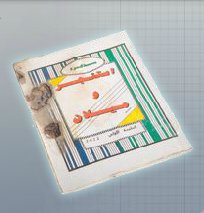
Photo by Dahr Jamail, used with permission.
This is the first of three posts on Truth and Reconciliation by guest author Ross Caputi.
Truth and reconciliation projects have proven to be a powerful ways of bringing closure to communities affected by violence, healing the psychological wounds inflicted by war, and taking the first steps towards bringing communities that have been torn apart by violence back together.
The most successful application of this idea of post-conflict restorative justice is the Truth and Reconciliation Commission in South Africa after the abolition of Apartheid. Many have attempted to apply this model to other conflicts involving protracted inter- and intra-group violence. Some have even tried to use it as a way of ending ongoing violence, as in the case of the Israeli occupation of Palestine.
However, much of the success of the Truth and Reconciliation Commission in South Africa can be attributed to the fact that Apartheid had been abolished. The unjust system that had been fueling oppression had ended, creating an opportunity to build a new society based on equality, human rights, and dignity.
We at Islah believe firmly that reconciliation is not possible while violence and violent systems are ongoing and sustained. Furthermore, it is insufficient for reconciliation projects to try to affect cognitive, emotional, and behavioral changes in groups and individuals alone in order to achieve reconciliation. Dialogue, exercises in forgiveness, and the fostering of attitudinal and perceptual shifts about the conflict do not address the structural injustices that drive conflicts.
Reconciliation cannot lead to resolution; it can only be a result of resolution. Furthermore, the form of resolution called “peace,” is not desirable if the structural injustices that caused the conflict remain in place.
Ross is currently on the Board of Directors of ISLAH. He is also a graduate student and a writer. In 2004, he was a US Marine in the US-led occupation of Iraq. His experience there, in particular his experience during the 2nd siege of Fallujah, compelled him to leave the US military and join the anti-war movement. His activism has focused on our society’s moral obligation to our victims in Iraq, and to the responsibility of veterans to renounce their hero status in America.



